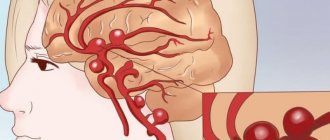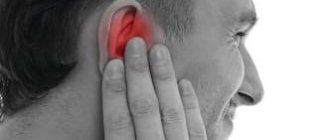Greetings, friends!
Everyone needs emotions, because they fill our lives with meaning, dictate our desires and dreams, motivate and guide us. There is no person who would not experience emotions and live a full life. However, there are a large number of people who do not know how to correctly understand and express their feelings. Psychologists call their condition the term “alexithymia.” And today we will analyze in detail what this phenomenon is, how it manifests itself, why it occurs and how to get rid of it.
What is alexithymia?
From a psychological point of view, alexithymia is the inability to adequately understand one’s own emotions and correctly perceive others’. This does not mean that a person does not experience emotions at all or experiences them incorrectly. This means that he interprets them incorrectly. But emotions still have an impact on him, affecting his mental state and forcing him to make certain decisions.
The term is of Greek origin. It is formed from the words λέξις (lexis - word) and θυμός (thymos - feeling), as well as the prefix ἀ, denoting negation. Thus, the word “alexithymia” can be translated into the phrase “there are no words for feelings.” In the scientific community, it is believed that the term does not convey the meaning of the concept well. But attempts to replace it were unsuccessful, and it became generally accepted.
Psychologists say that alexithymia is present to one degree or another in approximately 15% of the world's population. This condition can be congenital or acquired. At the moment, alexithymia does not have the status of a mental disorder and is not included in international disease classifiers such as ICD-10.
But this does not prevent psychologists and psychotherapists from recognizing the existence of this problem and looking for ways to combat it.
Signs of alexithymia
There are a number of characteristic signs characteristic of people with alexithymia. They are not necessarily present all at once or fully manifested. But usually there are at least several of them. The most common symptoms are:
- Lack of empathy. It is usually much more difficult for a person to judge other people's emotions than to judge their own. Therefore, empathy in people with alexithymia is almost always poorly developed or not developed at all. This doesn't make them soulless, they just misinterpret other people's emotions.
- Rationality. Such people think logically and try to calculate and systematize everything. Being calculating and rational is not so bad, but they really often lack emotionality. In addition, it is very difficult for them to interact with people who make decisions based on feelings rather than logic.
- Anxiety. As a rule, an alexithymic person has a full range of emotions. He feels some incomprehensible irrational feelings and impulses, but cannot correctly understand or explain them. And this often worries him.
- Lack of creativity. Creativity, when not related to technical ideas, is based on emotions. Therefore, a person with problems of emotional perception is not able to create works of art that would resonate with other people.
- Tactlessness. As noted above, an alexithymic person lacks empathy. He does not understand the emotions of his interlocutor, so he cannot boast of tact in communication. With his rudeness and indifference, he often pushes away those who try to get close to him. But he does not do this out of malice and often does not even realize it himself.
- Reduced sensitivity to pain. Many alexithymics tolerate physical pain much more easily than other people. They just place much less importance on pain, just like other feelings.
- Reluctance to share impressions. Typically, such a person avoids such conversations altogether, because he knows that this creates misunderstandings with others. Therefore, he almost never shares stories with colleagues or friends about how he spent the weekend.
- Inability to express emotions. If you ask an alexithymic person what they feel, they will tell you about physical feelings. If you ask specifically about emotional experiences, most likely, he will say that he does not feel anything at all.
- Ability to contain laughter. Most people, if you really make them laugh, can't stop laughing. A person with alexithymia perfectly understands how funny a joke is, and he himself can make excellent jokes, but at the same time remain indifferent.
Even knowing full well that misunderstandings too often arise in communicating with other people, an alexithymic person is still inclined to believe that the problem is not with him, but with those around him. His own actions and words seem to him correct and well thought out, while others seem illogical and irrational.
Causes of alexithymia
Alexithymia is a psychological feature that can be inherited or develop under the influence of external factors. As a rule, a hereditary predisposition causes a person to develop an acquired form of alexithymia. Moreover, most of the factors that can provoke it are associated with upbringing at an early age. These include:
- Ignoring the child's experiences by parents. Every child's day is full of events and impressions. Some things work out for him, some things don’t work out. And all this is of great importance to him. But parents often do not understand this, ignore the child’s experiences or do not attach importance to them. As a result, he simply does not know how to relate to his own emotions and over time learns to ignore them.
- Lack of emotional feedback in childhood. During the development process, it is very important for a child that his parents explain to him why he experiences certain feelings. This is how his emotional intelligence develops, which in the future will allow him to more subtly manage his own emotions and correctly interpret others. If for some reason the child did not receive answers to all the questions and did not understand something, he really may not understand what he feels and why.
- Ban on emotions. In some families, a ban on showing emotions is the norm. This is especially common for boys whose fathers try to raise them to be “real men.” Usually such a father is convinced that his son should be strong and stern, and that any feelings are a manifestation of weakness. A man brought up with such stereotypes himself thinks the same.
The last factor can also affect an adult who, for some reason, leads a secluded life or is forced to hide emotions. For example, if he is a military man, an employee of the special services or other law enforcement agencies, he himself forbids himself to be emotional. Working in such conditions for decades, a person can forget how to understand his own experiences.
Symptoms
If a person has severe forms of alexithymia, a clinic characteristic of this accentuation may appear, which is formed from certain signs. The following are characteristic signs of alexithymia:
- The tendency to replace the lack of emotional activity with various actions, for example, unconscious movement of the upper limbs or activation of fine motor skills;
- Inability to distinguish the emotional component from physical sensitivity;
- Poor dreams or no dreams at all;
- Little or no imagination. Such people try to distance themselves from art and its other components;
- Increased logic, concreteness of thought processes, structure in the presentation of any thought;
- Marked tendency towards social isolation and loneliness;
- Inability to rationally describe any feelings.
It is important to note that the presence of alexithymia is well recognized by the person who has it, but again does not cause any emotions or interest on their part. It is self-criticism and awareness of one’s own characteristics that does not give the right to consider alexithymia as a full-fledged pathological condition.
Types of alexithymia
In an effort to more accurately understand what alexithymia is and why it occurs, researchers have identified two forms of this disorder: primary and secondary. They differ in their nature and some features of manifestation. For effective treatment, it is very important to correctly determine which form is present in the patient.
Primary alexithymia
This is a deficit of emotional reactions that is physiological in nature. It may be due to the functioning of the nervous system or disturbances in its functioning. Instinctive impulses that cause emotional reactions affect the brain and other body systems. But at the same time, they bypass the process of awareness and mental regulation, which makes it difficult for a person to identify his own experiences.
Up to 85% of all patients with autism spectrum disorder suffer from primary alexithymia. Due to its physiological nature, it is practically not amenable to psychotherapeutic correction. To improve the condition of such patients, it is necessary to radically change their living conditions. They should have less stress and more opportunities to develop their emotional intelligence. To do this, they need to learn to identify their emotions according to various signs in order to compensate for the lack of natural ability to do this.
Secondary alexithymia
This form of deficit of emotional reactions is of a psychological nature and is most often caused by the denial of emotions. The reasons for this denial vary. For example, these can be various defensive reactions of the psyche, such as denial, repression, suppression and others. Because emotions are blocked or repressed, they are often not recognized, but can lead to somatic or even mental disorders.
Secondary alexithymia responds well to psychotherapeutic correction. The complexity of treatment depends on how long ago the disorder arose. If it goes back to childhood, it will be more difficult to get rid of it. And the most favorable prognosis is in cases where alexithymia developed in adulthood (for example, as a reaction to mental trauma or stressful circumstances).
The fact that it is easier to get rid of secondary alexithymia is quite logical. A person is already familiar with all emotions, he has simply lost the ability to correctly identify and interpret them. It is much easier to return this ability to an adult than to learn to understand emotions if he has never been able to do so.
Thus, the treatment of primary and secondary alexithymia has different goals. In the first case, a person learns to understand his own and other people’s emotions from scratch, and in the second, he simply remembers how this is done. A special test developed by the Toronto Alexithymia School (TAS) allows one to determine the form and degree of the disorder with fairly high accuracy.
Correction and restoration of emotional status
Primary alexithymia is difficult to treat.
An acquired disorder can be successfully treated. The main therapeutic method is psychotherapy, namely such areas as Gestalt therapy, psychodynamic techniques (modified and conventional), art therapy and hypnosis. However, not all psychotherapy techniques are suitable. Traditional psychoanalysis will be ineffective, because aims to avoid expressing feelings during sessions with the therapist. Psychotherapeutic treatment is aimed at enabling the patient to learn to recognize and express feelings, and to help develop imagination.
Treatment for alexithymia can take more than a year. At the initial stages, results are unlikely; during this period, the support of loved ones is necessary. The success of therapy depends on the patient’s desire to bring changes to his inner world.
At the moment, the effectiveness of drug treatment has not been proven. There is evidence of successful treatment with benzodiazepine tranquilizers. An integrated approach is most preferable.
Drug treatment and the work of a therapist should be carried out not only with psychosomatic symptoms, but also with such underlying causes as depressive states, psycho-emotional stress, and anxiety. It is also necessary to pay attention to the metabolic balance and hormonal levels of the patient.
Prevention
Now that we have found out what alexithymia is and how dangerous it is, we can confidently say that it is advisable to avoid this condition. The best prevention in this case is competent education, and this is an additional responsibility that falls on parents.
From an early age, a child must understand how important it is to correctly interpret his emotions, without suppressing them, but using them as an important tool of self-control. There should be no prohibitions on feelings. If you raise a child under such pressure, then in adulthood it will be very difficult for him to get rid of the habit of suppressing his own emotions.
Another important preventive measure is the development of imagination and creative thinking. This must be done both in childhood and in adulthood. Parents should encourage their children to express their feelings in every possible way, as this is the inalienable right of every person. Of course, we are not talking about teaching a child to violate discipline by demonstrating his individuality.
Treatment
The very first step is to accurately diagnose what form of alexithymia the patient has and how severe it is. To do this, the Toronto School of Alexithymia test mentioned above is used. Further treatment is complex. It is based on psychotherapy; additional medications can be prescribed to increase the effectiveness of treatment and consolidate the results.
The therapist's job is to teach the client how to correctly interpret their feelings and manage their emotions. This reduces the psychosomatic effect and reduces the risk of various diseases that it can cause. Quite often, to relieve internal tension, a person simply needs to learn to cry or get angry, releasing emotions, rather than holding them back.
Diagnostics
Despite the fact that manifestations of alexithymia in most cases become obvious already during the first communication with a person who has this character trait, this feature requires detailed analysis and diagnostic research methods. Psychologists use a special diagnostic tool called the Toronto Alexithymic Scale.
The Toronto Alexithymia Scale is a specialized psychological test that allows you to assess the severity of alexithymia in a particular individual.
RELATED MATERIALS: What to do with panic attacks: during pregnancy, during menopause, before menstruation
The Toronto Alexithymia Scale was developed at the Bekhterev Institute and is an informative diagnostic tool, especially for identifying minor forms of alexithymia.











